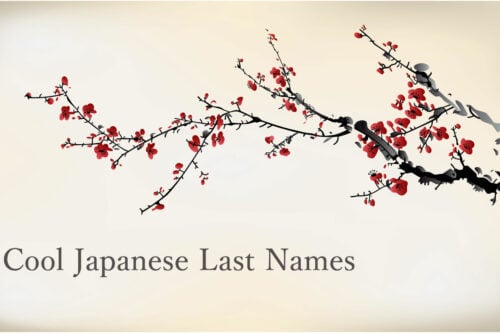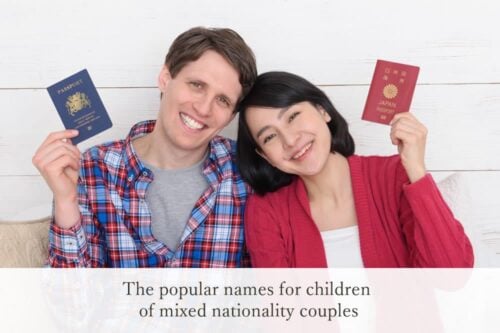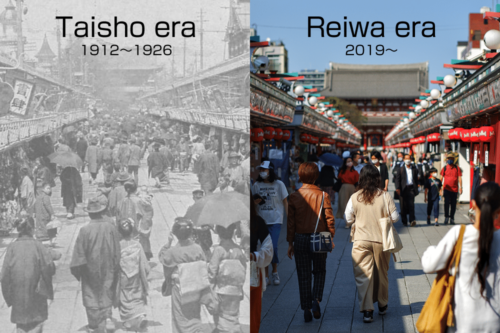Share this link via
Or copy link
Below are navigation links that will take you to the main text and navigation menus.
26,551 first names, 70,620 last names, 333,585 kanji variations.
one of the best Japanese name search tools for your baby!

Many people across the globe, including those in the United States, find themselves drawn to Japanese first names for their mellifluous sounds, deep meanings, and unique aesthetics. Whether you’re a pop-culture enthusiast, a parent seeking a fresh name choice, or simply curious about Japan, these “cool” names may capture your imagination. In this article, we’ll explore how Japanese names work, highlight some of the coolest examples, and explain how you can pronounce them correctly.
Contents
In recent years, Japanese art forms—anime, manga, J-pop, and film—have influenced global trends, giving certain names an air of novelty and style. Characters or celebrities often bear concise, rhythmic names that leave a strong impression on international audiences.
Unlike English names—typically written in the Roman alphabet—Japanese names are written in kanji, which are characters originally derived from Chinese. Each kanji has its own nuanced meaning (e.g., “flower,” “sea,” “cool breeze”), so the same name pronunciation can hold different symbolic values depending on which kanji the parents choose.
While older generations might prefer more classical or multi-kanji names, younger parents sometimes pick short, “global-friendly” names. This shift has boosted the popularity of names like Ren (れん) or Kai (かい), which sound both distinctly Japanese yet easy to pronounce abroad.
Japan’s language allows parents to use kanji that literally mean “cool,” “refreshing,” or “breeze.” These names have a double-layered charm—they sound cool and literally describe a chill or brisk feel.
Japanese first names offer a fascinating blend of concise sounds, symbolic kanji, and often a hint of modern minimalism. From the calm depth of Ren (れん) ![]() and Kai (かい)
and Kai (かい) ![]() to the elegant ring of Anju (あんじゅ)
to the elegant ring of Anju (あんじゅ) ![]() and Yuna (ゆな)
and Yuna (ゆな) ![]() , these names are memorable and adaptable across cultures. In some cases, they literally mean “cool,” like Ryōko (涼子)
, these names are memorable and adaptable across cultures. In some cases, they literally mean “cool,” like Ryōko (涼子) ![]() (“cool child”) or Issa (一颯)
(“cool child”) or Issa (一颯) ![]() (“one breeze”), underscoring just how refreshingly unique Japanese naming conventions can be.
(“one breeze”), underscoring just how refreshingly unique Japanese naming conventions can be.
Whether you’re exploring baby-name ideas, crafting characters for a story, or simply intrigued by Japanese culture, learning about these names deepens your appreciation of how language, artistry, and tradition intertwine. Embrace the coolness—and the warm cultural significance—behind these alluring Japanese first names.




Sort by Most Kanji Variations
This is the order of names with many variations of kanji.
Basically, names with more variations are more common and familiar to the Japanese.
Sort by Most Viewed
The names are sorted by the number of times they have been viewed on this site. This ranking is based on the behavior of users around the world, including Japan, so it does not mean that the names are commonly viewed by Japanese people only.
Please note that just because a name has been viewed more times does not mean it is a famous name in Japan.
What is Hiragana?
Hiragana is a syllabary used in written Japanese, which originated from the cursive style of Kanji.
What is Katakana?
Katakana is also a Japanese syllabary. Basically, the characters don't have any meaning by themselves, they only represent the sounds.
Japanese try to express the words came from foreign languages with the most similar sounds in Japanese using Katakana.
What is English Transcription?
English Transcription is a term used when translating Japanese names into English. It represents a romanised version of the name with the aim of reproducing the pronunciation as accurately as possible. English Transcription can also be used for name searches.
Japanese Style Nickname
In Japan, nicknames are commonly used to express familiarity and affection. Here are key features and contexts:
Shortened Forms: Names are often shortened for ease and intimacy, such as 'Yuki' from 'Yukiko' or 'Taka' from 'Takashi'.
Suffixes: Terms like 'chan' for girls and 'kun' for boys are added to names among close friends and family. However, 'chan' can also be used for boys during childhood. Additionally, among adults who are very close, like best friends, 'chan' may still be used to convey affection and familiarity. More Details
Usage and Cultural Aspects: Nicknames are typically used in informal settings among friends, family, or close colleagues, and are not suitable for formal or professional environments. The use of a nickname suggests a degree of intimacy and should reflect the nature of the relationship. Young people often demonstrate creativity in their social interactions by crafting unique nicknames.
Note: In Japanese, the long vowel sound is indicated by a special character called a "chōonpu" (長音符), which looks like a horizontal dash (ー). This character serves to extend the duration of the vowel sound immediately preceding it. For instance, in the name "あーちゃん" (A-chan), the "あ" (A) is extended, producing a prolonged "ah" sound, similar to the "a" in "father."
Households?
The names are sorted by the number of Japanese households where the surname is used.
The more households there are, the more famous and common the surname is.
About this site's data of last names
